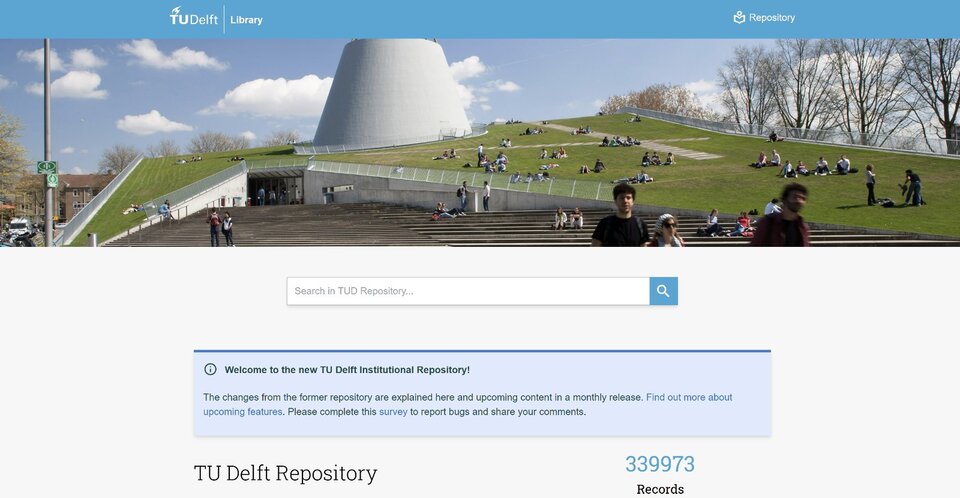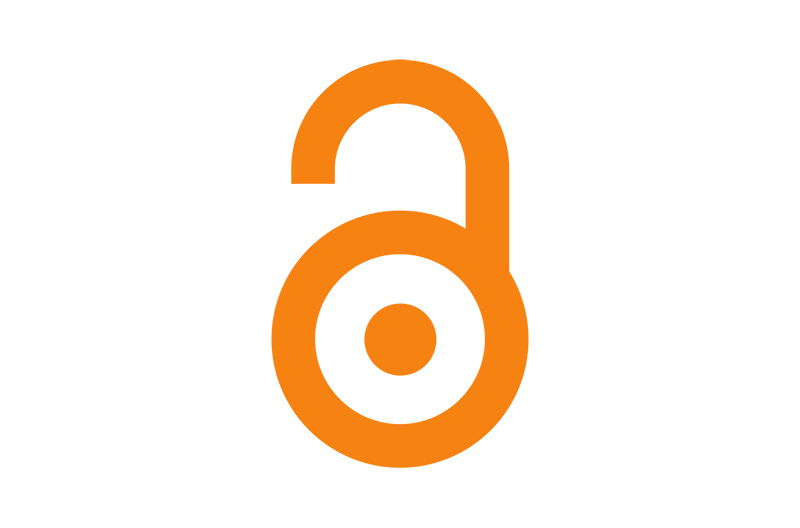The TU Delft Library – a driving force of open access publishing
With open publishing deeply ingrained in the DNA of TU Delft it is easy to overlook what happens behind the scenes. Joke Dales and Kees Moerman, both longtime employees of the TU Delft Library, have been involved from the start and they still provide abundant support.
Ever since its launch in 2004, the repository has served as the TU Delft digital archive for scientific publications, dissertations, research data and other academic documents – with the materials stored and made available following open access principles. Both Joke Dales and Kees Moerman served a range of roles at TU Delft Library prior to joining the repository department in 2010.
Open access was just gaining traction at the time, and I found it an intriguing development
Joke Dales
Kees emphasizes that it was not only new to them, but also to scientists. “Some were hesitant or even resistant to it, while others had many questions. Open publishing, sure, how does it work? And what about these Creative Commons Licenses? You name it.”
Automation and human effort
In its early days, open access support involved a lot of direct contact with researchers, but this has changed. Take Pure for example, the Current Research Information System of TU Delft. “Anything uploaded to pure will automatically be uploaded to the repository – if it is open access and includes a PDF file,” Kees explains. “But every now and then a manual intervention is needed to ensure the metadata is accurate. We also obtain a DOI for the dissertations we upload to the repository and add an embargo if needed.”
Open Access Fund
As soon as open access gained momentum, TU Delft launched a fund to promote its use. “Researchers can apply for funding to publish their scientific results in open access journals,” Joke says. “We check that the application meets all the funding criteria before it makes it to the budget manager. For example, the journal must be 100% open access and the applicant – typically the corresponding author – must have a working relationship with TU Delft.” An overview of all funding criteria can be found on the website of the Open Access Fund.
There also are many agreements with publishing houses – either directly with TU Delft Library or nationally with Dutch universities – that make open access publishing free of charge for a lot of journals. The library offers support in that case as well. Joke: “Each publisher has a unique workflow for open access publications. We can help answer any questions that come up in this process. Our website also provides an overview with links to the workflows of various publishers.”
Similarity checks
Another important task for Joke and Kees is to perform the similarity check (plagiarism check) for anything published under open access by TU Delft itself. That includes open access journals managed by TU Delft, dissertations, open (text)books, and more. “We make sure that a comparison report is created and sent to the promotor, editor or author – usually within 24 hours,” Kees says.
It is then up to them to draw a conclusion. We have drafted a guide on how to interpret the report and created a FAQ for answering many questions.
Kees Moerman
TU Delft Open Publishing - Evolving Scholar
TU Delft OPEN Publishing - The Evolving Scholar
Recently, Joke got involved with The Evolving Scholar – an open access community-driven journal for novel types of publications. “It is a very innovative platform,” Joke says. “Being new and still evolving, it is quite exciting to help develop and refine the workflows. I also assist with metadata management and the creation of comparison reports for plagiarism checks. I enjoy this work and hope to remain involved in the future.” A secondary responsibility of Kees is that he designs covers for open textbooks published by TU Delft. “I communicate with the authors and, once completed, upload the covers to the website of TU Delft OPEN Publishing.”
Thanks to their diverse responsibilities and fifteen years of experience in open publishing, Joke and Kees are a significant asset to TU Delft and its employees. “And we remain committed to keeping all processes related to open access as straightforward as possible.”
Curious about further developments around TU Delft OPEN Publishing? Read more about a previous Changing Publication Culture event.




